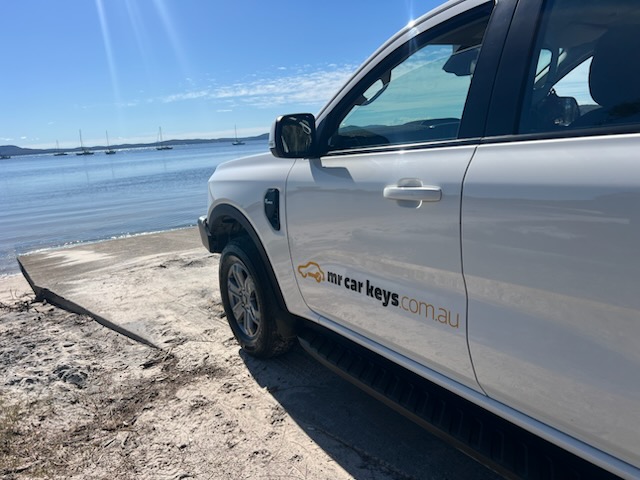
Summer Car Key Troubles: How Water & Sand Can Damage Your Keys
With the weather warming up, it’s a good time to spend just a few minutes thinking of simple things we can do to protect our keys from the many things that can go wrong in the summer months. Water and sand are two of the most common summer hazards that can cause serious issues with your remote, transponder, or smart car keys.
Here at Mr Car Keys, we often see customers caught off guard by summer-related key damage. It can really wreck a holiday or take the shine off a great day. Here’s what you should know about the risks, what to do if it happens, and how to protect your keys this season.
How Water Affects Car Keys
Modern car keys are much more than just pieces of metal. Most now include chips, batteries, and electronic boards that control locking, unlocking, and starting your vehicle. Water can cause:
Battery corrosion – If water seeps into the casing, it can damage or short out the battery.
Chip failure – Transponder chips are sensitive; exposure to water may stop them from communicating with your car.
Button malfunction – Water can get under the buttons, making them sticky or unresponsive.
Permanent electronic damage – Saltwater (from the beach) is especially harmful and can quickly corrode circuits.
How Sand Affects Car Keys
Sand can be one of the biggest enemies of car keys during summer beach trips. It can cause:
Blocked buttons – Fine grains can wedge under the rubber buttons, making them stiff or unresponsive.
Scratched casings – Sand can grind against plastic casings, weakening them and making it easier for water to get inside.
Internal wear – If sand works its way into the battery housing or circuit board, it can cause scratches, shorts, or loose connections.
Ignition trouble – If sand sticks to a key blade, it may scratch the inside of your ignition when you turn it.
What to Do if Your Key Gets Wet or Sandy
If your key ends up in the surf or buried in the sand, quick action matters:
Remove the battery immediately (if possible). This prevents further electronic damage.
Rinse carefully if needed – If your key has saltwater or sand on it, a light rinse with clean fresh water (battery removed) can wash away corrosive salt and grit.
Dry thoroughly using a soft cloth or towel.
Clean out sand – Use compressed air or a soft brush to gently clear sand from buttons, grooves, and the key blade.
Air it out – Leave the key open in a dry place, avoiding direct heat like hair dryers.
Use silica gel or rice – Place the key in a sealed container with silica gel packets (or rice as a backup) to absorb moisture.
Test carefully – Once dry and clean, reinsert the battery. If it doesn’t work, call a locksmith.
Tips to Prevent Summer Damage to Your Keys
Prevention is always easier (and cheaper) than repair or replacement. Try these tips:
Use a waterproof pouch or lanyard – Great for beach, pool, or boating days.
Invest in a “surf key” – Many vehicles can be paired with a basic, cut-only key (without electronics) for use at the beach. You can lock the remote safely inside the car and take only the surf key into the water.
Keep keys away from towels and sand – Don’t bury them in the sand or wrap them in a damp towel.
Rinse hands first – Before handling keys after swimming, quickly rinse off salt and sand.
Have a spare – Keep a programmed spare key at home in case of emergencies.
Regular checks – Look for cracks or loosened casings that make it easier for water or sand to enter.
When to Call a Locksmith
If your key stops working after exposure to water or sand, don’t force it. Continued use of a damaged key can harm your ignition or locking system. At Mr Car Keys, we can:
- Repair or replace damaged key casings and buttons.
- Clean and service electronic components.
- Program a new key if the old one is beyond repair.
- Cut a surf key for you, so you can enjoy the beach without worrying about your electronic key.
Summer fun shouldn’t end with a broken car key. Both water and sand can cause hidden damage to modern car keys, but with the right precautions—and quick action if something goes wrong—you can avoid costly repairs.
If you’re dealing with a waterlogged or sand-filled key, or want a spare or surf key before your next trip, get in touch with us. We’ll keep you moving, no matter the season.

